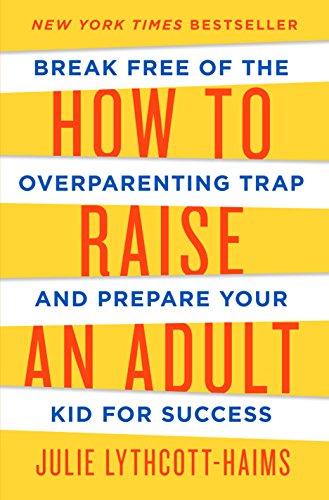How to Raise an Adult: Break Free of the Overparenting Trap and Prepare Your Kid for Success Link to heading
Summary Link to heading
“How to Raise an Adult” by Julie Lythcott-Haims addresses the pitfalls of overparenting, illustrating how excessive involvement in children’s lives can hinder their ability to develop independence and resilience. Lythcott-Haims, drawing on her experiences as a former Stanford University Dean, presents the negative consequences of helicopter parenting and how it can impact children’s mental health and success in adulthood. The book advocates for fostering independence by allowing children to learn from their own failures and encouraging self-efficacy. It uses real-life examples and research to offer strategies for parents to step back and allow their children to grow into capable adults.
Review Link to heading
The book is impactful in highlighting a prevalent issue in modern parenting. Lythcott-Haims balances personal anecdotes with empirical research, making it relatable and credible. Her insider perspective from working at a university adds depth to her arguments. A strength of the book is its practical advice, which is grounded in reality rather than abstract ideals. However, some readers may find that the book’s targets are primarily parents in middle to upper-middle-class demographics, and it may not fully address the challenges faced by families in different socioeconomic contexts. Overall, it is a thought-provoking read that challenges conventional parenting norms.
Key Takeaways Link to heading
- Foster Independence: Children need opportunities to develop autonomy by undertaking age-appropriate responsibilities.
- Learn from Failure: Allowing children to experience and navigate failures is crucial for building resilience and problem-solving skills.
- Encourage Self-Efficacy: Parents should encourage children to manage their affairs, enhancing their confidence and decision-making abilities.
- Strive for Balance: Identify a healthy balance between supporting children and enabling them to manage tasks on their own.
- Avoid Comparison: Resist comparing children to their peers, which can undermine their self-esteem and motivation.
Recommendation Link to heading
This book is highly recommended for parents, educators, and anyone involved in child development. It is particularly useful for parents seeking to understand the consequences of overparenting and those looking to foster greater independence in their children. The insights are valuable for preparing children for real-world challenges, making it an essential read for modern parenting.
